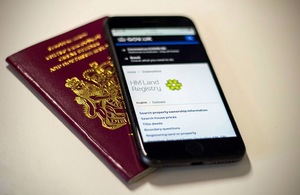 A high number of homebuyers across the UK are not being asked to provide identification when purchasing a property, let alone having their ID properly verified, new research shows.
A high number of homebuyers across the UK are not being asked to provide identification when purchasing a property, let alone having their ID properly verified, new research shows.
The survey of UK homebuyers asked when purchasing their last property, did the selling agent ask for proof of identity, such as, but not limited to, a passport or driving licence?
Some 77% of respondents said they were asked to prove their identity, a task that can be completed quickly with a passport or driving licence, a biometric residence permit, national identity card or a combination of documents such as council tax bills, bank statements and utility bills. It can also be done via a KBV, where a number of questions are asked based on personal information from their credit file.
But somewhat concerningly, 23% of those surveyed by Credas Technologies admitted they had not been asked to verify their identity at all.
When asked the same with respect to their current address, 30% also stated they provided no proof, for example, in the form of a utility bill or similar.
Some 13% stated that they were not asked to verify their identity by their lawyer or solicitor once the sale had started to progress, while 18% also said that when starting out, their mortgage broker also failed to verify their identity properly.
Tim Barnett, CEO of Credas Technologies, commented: “For the vast majority of those operating within the property industry, failing to verify the identity of a potential buyer may sound unbelievable. Not only is there a legal requirement to do so, but it can also be incredibly detrimental should they fall foul of criminal activity.
“Unfortunately, it does happen more often than you may think, particularly for those attempting to verify a vast number of buyers on a manual basis.
“This is almost certainly an oversight due to stretched resources, rather than a cavalier attitude on the part of property industry professionals.
“However, it does demonstrate the value that can be gained from a professional approach, whereby one identity verification can then be used across every area of the transaction process and by multiple shareholders such as agents, solicitors and mortgage brokers. It also highlights the value of investing in a bonafide onboarding platform that will prevent any transaction from progressing should a buyer’s identity not be properly verified.
“Not only does this approach save time, money and resources, but it reduces the chance for criminal entities to utilise the industry to launder their ill-gotten gains.”


Hopefully the 77% increased to 99/100%, when a conveyancer was instructed, and if so, it does beg the question of why is an ID check being carried more than once within what is usually a relatively short period of time?
You must be logged in to like or dislike this comments.
Click to login
Don't have an account? Click here to register